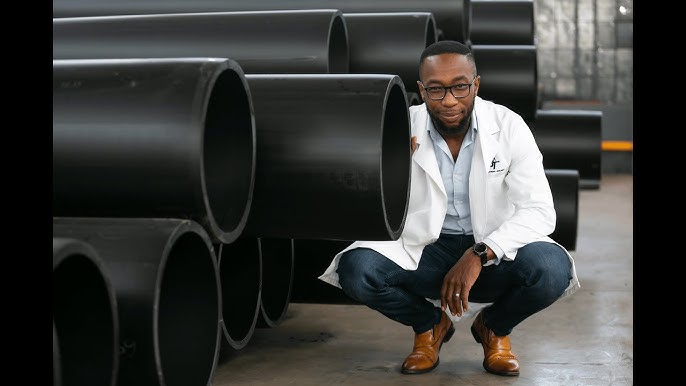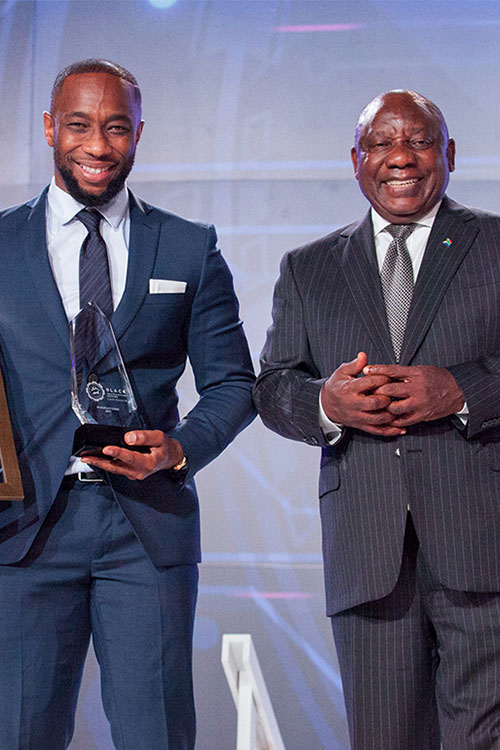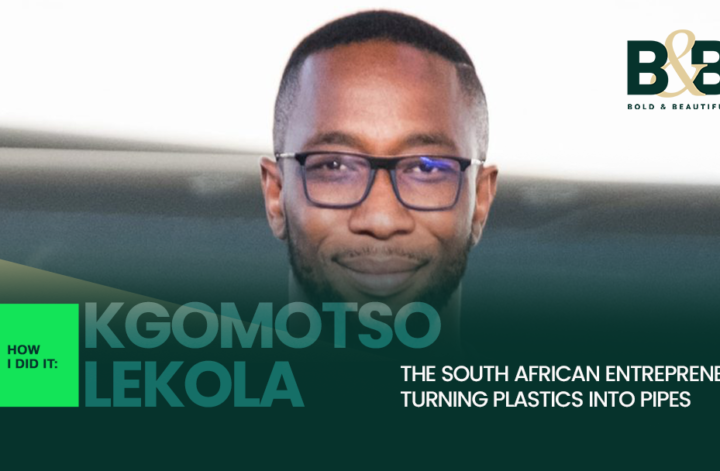Kgomotso Lekola never set out to build an empire from plastic. But then again, the great ones rarely do. They stumble upon opportunity, wrestle it to the ground, and mold it into something remarkable. In Lekola’s case, it was pipes—humble, unglamorous, and overlooked. The kind of product that never gets a front-row seat in the entrepreneurial hall of fame. Yet, here he stands today, the Founder and CEO of BT Industrial Group, having turned an industry many ignored into a multimillion-dollar industrial revolution.

South Africans have a knack for mining the depths of their land for wealth—gold, diamonds, platinum. But Lekola? He saw treasure not in what lay beneath but in what was discarded. Plastic. A material that, for many, symbolized waste. For him, it was the future.
The Business of Seeing What Others Don’t
Every great entrepreneur has that “aha!” moment—when the noise of the world fades and the dots suddenly connect. For Lekola, it wasn’t a grand epiphany. It was a slow, deliberate realization: Africa’s infrastructure problem is also a materials problem. South Africa was importing industrial pipes at an astronomical cost while drowning in plastic waste. The irony was glaring.

So, what did Lekola do? He did what few dare to—he bet on an industry that had neither the shine of fintech nor the viral appeal of e-commerce. Plastic pipes. Yes, those mundane, underground conduits that nobody thinks about but without which cities would crumble.
“People told me there was no market,” Lekola recalls. “I told them they weren’t looking hard enough.”
And he was right.
Lessons in the Art of Reinvention

Africa has long been conditioned to consume rather than create. We import solutions to problems that can be solved with the resources already in our hands. Lekola’s genius wasn’t just in producing plastic pipes—it was in rethinking them.
Why ship in foreign-made pipes when South Africa could make its own?
Why let plastic pollution choke the environment when it could fuel industrial growth?
It wasn’t just about business. It was about industrial sovereignty. Lekola’s company wasn’t simply manufacturing pipes; it was manufacturing independence.
The Rhetoric of “Impossible”
The road to industrial success in Africa is paved with skepticism. Many doubted whether a black-owned company could dominate in a sector long monopolized by global giants. But Lekola, like all disruptors, understood a simple truth:
“Impossible” is just a fancy way of saying, “I haven’t seen it done before.”
Instead of arguing with skeptics, he let the numbers do the talking. BT Industrial Group grew, securing multi-million-dollar contracts and proving that local manufacturing wasn’t just possible—it was profitable.
Lekola’s journey is a quiet indictment of Africa’s obsession with foreign solutions. We are often told that our industries are too small, our ambitions too risky, our innovations too untested. Yet here he is, standing on the shoulders of his success, making a mockery of every doubt ever cast his way.
The Irony of Africa’s Industrial Future
The world is finally waking up to what Lekola has always known: Africa’s industrial revolution will not be televised, but it will be manufactured. The irony? It won’t be fueled by the conventional riches of the past—gold, oil, or diamonds—but by materials we once deemed worthless.
While governments hold summits on economic diversification, entrepreneurs like Lekola are already diversifying. While analysts debate the future of Africa’s economy, he is already shaping it.
He built a thriving industrial company from plastic waste. What excuse do the rest of us have?

Lekola’s story isn’t just about business. It’s about vision, courage, and the audacity to build where others only see obstacles.
The next time someone tells you that an industry is dead, that an idea won’t work, or that Africa’s problems are too big to solve—just remember: plastic pipes.





